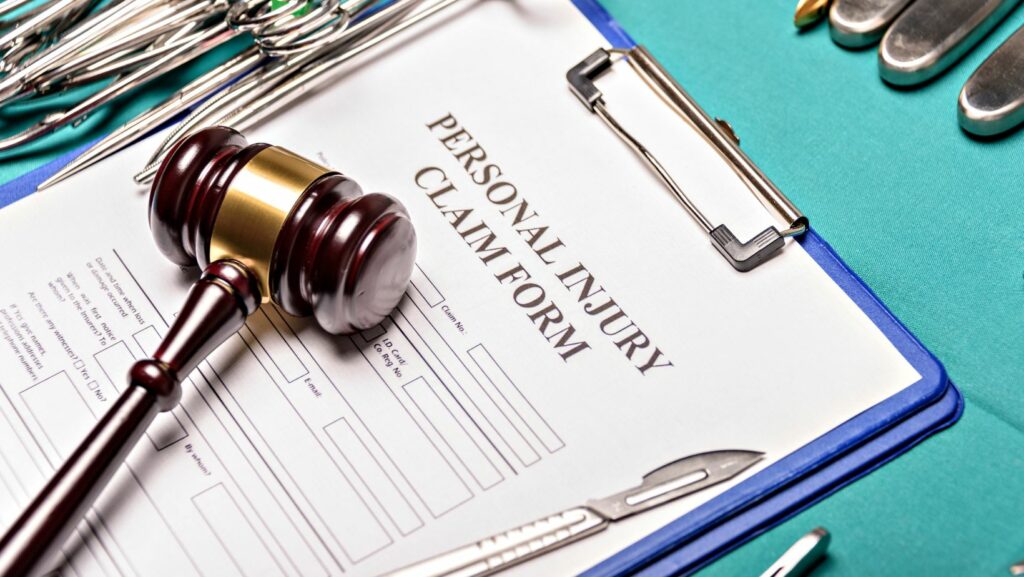
Navigating the legal maze after a personal injury can be daunting. It’s a time when you need a skilled advocate on your side. Choosing the right personal injury attorney is a critical decision that can significantly influence the outcome of your case. When facing the complexities of a personal injury claim, finding the right personal injury attorney can be crucial to the success of your case.
This article provides a roadmap to help you select the ideal personal injury attorney for your legal needs. Whether it’s understanding their experience or assessing their communication style, we’ve got you covered. Let’s demystify the process together and ensure you’re equipped to make an informed decision.
Stay tuned as we delve deeper into the key considerations when selecting your legal champion. The journey towards justice doesn’t have to be overwhelming. With the right attorney, it’s a path you won’t have to walk alone.
Understanding the Role of a Personal Injury Attorney
Digging deeper into the process of finding the right personal injury attorney involves understanding their role and mandate. This knowledge offers insights into what to anticipate and positions you to make a more informed choice.
What Is a Personal Injury Lawyer?
A personal injury attorney specializes in civil law, intervening where victims have sustained physical or psychological injuries due to the negligence of another individual, company, or government agency. They carry the responsibility of representing these victims, providing professional legal services that cover all aspects from filing a personal injury lawsuit to negotiating settlements on behalf of their clients.
To underscore the significance of their role: imagine a scenario where someone has sustained severe injuries following a car accident largely due to a faulty traffic light. A personal injury attorney comes in, filing a lawsuit against the respective government agency responsible for traffic light maintenance, grounded on an argument that their negligence has led directly to these injuries.
Typical Cases Handled by Personal Injury Attorneys
Here, it becomes clearer that the scope of a personal injury attorney’s work spans a vast array of cases. These encompass car accidents, as mentioned earlier, and go to include others like work-related injuries, slip and fall accidents, medical malpractice, and even exposure to harmful substances or products. In essence, any instance that leads to injury owing to another’s negligence remains within the domain of a personal injury attorney. Their role, simply put, is pursuing justice and compensatory damages for the victim.
Factors to Consider When Selecting a Personal Injury Attorney
Finding the right personal injury attorney hinges on several crucial factors. This section seeks to expound on these factors that warrant consideration.
Experience and Specialization
Choose an attorney holding particular expertise and a robust track record in personal injury law. For example, if a client suffers injuries from a slip-and-fall accident, it benefits them to engage an attorney who specializes in this field. Verify the attorney’s credentials and years of practice to ascertain their level of experience. Check for any specialization or certifications, such as a board-certified specialist in personal injury trial law.
Reputation and Client Feedbacks
Another paramount factor is the attorney’s reputation. Look at the attorney’s standing among peers, which implies their integrity and ability to handle complex legal situations.

Client reviews offer insight into an attorney’s professionalism, promptness, communication style, and degree of success in previous cases. For instance, a lawyer with consistently positive client testimonials is likely to deliver satisfactory services.
Fee Structure and Billing Practices
Finally, consider the attorney’s fee structure and billing practices. Most personal injury attorneys offer services on a contingency basis, meaning they only get paid if they achieve a favorable outcome in the case. However, it’s vital to comprehend the fee percentage they deduct from the total settlement or court award, essential expenses not covered by the contingency fee, and any potential fees if the case doesn’t prevail. For example, a lawyer might charge a fee percentage that increases depending on the case progression stage, such as filing a lawsuit after failed settlement negotiations.
The Importance of Initial Consultations
Initial consultations hold vital importance in the process of finding the right personal injury attorney. At first glance, it’s a chance for both sides to assess suitability; on a deeper level, it provides insight into the potential attorney’s professionalism and competence.
What to Expect During Your First Meeting
First encounters with potential attorneys hold the promise of unfolding critical information. Potential clients can anticipate a thorough review of their case. This step includes the attorney noting essential details, the circumstances of the injury, and evidence at hand. Pertinent documents, such as medical records and accident reports, play an integral role in this stage. This comprehensive review affords the potential attorney a solid understanding of the case.
The initial meeting also provides an excellent opportunity for potential clients to gauge the attorney’s communication style and integrity. It’s an occasion to observe if the attorney listens attentively, provides clear explanations, and displays genuine concern for the client’s situation. Both the lawyer’s professionalism and responsiveness serve as indicators of their dedication to the case.
Questions to Ask a Potential Attorney
Preparation for the consultation involves listing pertinent questions for the potential attorney. These inquiries might include asking about their experience with similar cases, success rate, and litigation strategy. Revealing questions, such as their evaluation of the case’s strengths and weaknesses, can provide valuable insight.
Asking about the potential attorney’s fee structure remains paramount. Clear understanding of the costs and any additional fees associated ensures no unpleasant surprises later on. Querying the typical timeline for similar cases gives a realistic expectation of the case duration.
By being proactive and prepared during the initial consultation, clients can optimize this invaluable opportunity to evaluate their potential personal injury attorney thoroughly.
Preparing to Work With Your Attorney
Selecting the optimal personal injury attorney necessitates more than just research; preparation for an efficient collaboration is equally crucial. This section dwells on crucial steps in this preparation process, including gathering necessary documentation and understanding one’s role in the legal process.
Gathering Necessary Documentation
Accumulating pertinent documents is a critical step when gearing up for an interaction with a personal injury attorney. This documentation provides insight into the specifics of the case, informs the injury assessment, and aids in formulating an effective litigation strategy.

Documents such as medical reports, insurance policy details, police reports, photographs of the accident scene, and witness statements, qualify as relevant. Similarly, any correspondence with insurance companies serves as critical evidence. Additionally, retain copies of expenses incurred – medical bills, repair costs, and any other out-of-pocket expenses.
Understanding Your Role in the Legal Process
Awareness and understanding of one’s role in the legal process is crucial. As a client, one can’t remain a mere spectator; active participation is encouraged.
Engage in a clear and open exchange of information with the attorney. In addition, always remain honest about the incident and the injuries sustained. False or withheld information can potentially harm the case, the attorney-client relationship, and the legal process.
Staying informed, asking questions regarding the strategies developed, and understanding the possible outcomes are salient aspects of one’s role. A flexible attitude to adapt to altering circumstances in the case constitutes the key to effective partnership with your attorney. You are a crucial part of the team; your cooperation and input facilitate the progression of the case.
Adopting these practices facilitates a productive and cooperative working relationship with your chosen personal injury attorney. By getting prepared, you ensure that your interaction is efficient and your representation is powerful, thus maximizing your potential for a successful lawsuit.



